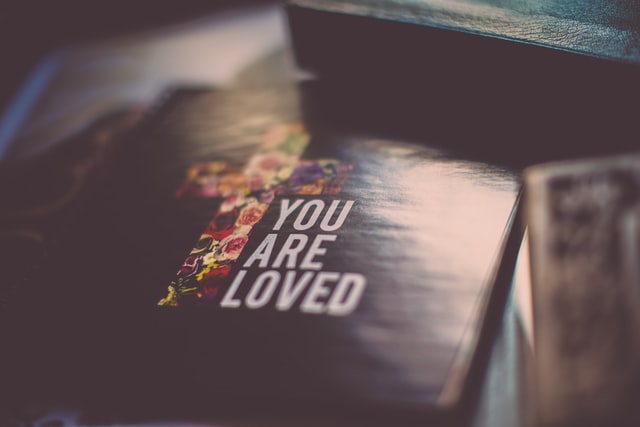I know that progressive Christianity is the new f-word for some Christians who don’t want all its associations. But I want it all.
Many women know what it’s like to live with a label with varied understandings that may or may not indicate what she would say about herself. We call it “the f-word.” With all the power, offense, and short-handed emphasis of the traditional expletive, the word “feminist” both welcomes and repels, represents and insults.
Acknowledging the rifts and (mis)conceptions about feminism, bell hooks writes simply, “Feminism is a movement to end sexist oppression” (see Feminism Is for Everybody). A colleague recently reminded me that something could be feminist without referring to women or gender. Feminism is also about raising consciousness, questioning power, breaking free from either/or thinking, embodied spirituality, equity that does not require same-ness, and the constant cry against injustice (to name a few).
The truth is that feminism is more than that. The “f-word” evokes a wide range of images: women’s suffrage, bra-burning, man-hating, equal pay, Goddess movements, lesbianism, the assertion that God is not male. The mere cacophony of connotations is enough to make many women eschew the word altogether. For them, the word “feminist” suggests some alliances they just don’t have.
But I want it all. I want to be associated with the f-word. I want people to know that I am not afraid of being connected to all the people and the ways that they resist sexist oppression in their homes, beds, work places, families, politics, and faiths. Even when they’re not perfect in doing so.
I don’t judge my non-feminist-labeled female (and male) colleagues. I have felt the same way about being a Christian. In Christianity’s name, I see slavery, civil disobedience, Crusades, global capitalism, ecological justice, gay-bashing, shelters for the homeless, food pantries for the hungry, culture-imposing missionary work, and the list continues.
Black church traditions taught me how to sort between the legacy of Christendom and the gospel of Christ. I always understood the Christian message as an edict to work for a greater sense of justice. I was clear that this was Jesus’ ministry and teaching, and that this was a universal call to all Christians. For me, the connection between Christianity and justice was not progressive; it was normative.
If I only had a crisis of association, I would have been fine; but I had a crisis of faith. My questions for Christianity went something like this: Is Jesus the only way? What happens to everyone else? Aren’t atheists and LGBTQI persons as valuable to God as are black people and women? Is the gospel summarized on the cross and theories of atonement? Or in what Jesus did and said?
Some of my Christian training told me there was only one answer to these questions. It focused on whether I was “in” or “out.” While I was encouraged to share my faith with others, they had to believe like us in order to be welcome. Because of my identity and embodiment, I know how it feels to be “out.” If this was “Christian,” I didn’t want it.
It soon became clear that what made me progressive was not what I did with God in the world; rather it was what I believed about them. Just when it seemed that the word “Christian” no longer applied to me, I found the 8 points of The Center for Progressive Christianity. Among others, this list described progressive Christians as those of us who approach God through the life and teachings of Jesus, but recognize the faithfulness of other people and acknowledge that their ways are true for them, as our ways our true for us.
We find more grace in the search for meaning than in absolute certainty, in the questions than in the answers. There is a commitment to forming community dedicated to striving for peace and justice among all of God’s creation, and then inviting all people to participate in this community without insisting that they become like us in order to be acceptable.
“Progressive Christianity” gave me my core beliefs about Jesus with the justice of my black Baptist and AME Christian heritages, while allowing for more theological difference, interreligious understanding, and doctrinal mystery. It didn’t require me to have a “them” in order to be an “us.” Like the f-word, it connotes raising consciousness, questioning power, breaking free from either/or thinking, embodied spirituality, equity that does not require same-ness, and the constant cry out against injustice. “Progressive” allowed me to stop whispering “Christian”—just like the adjectives “black” and “womanist” made many women feel more included in feminism.
Just recently, I learned that progressive Christianity was the new f-word. It became clear when Sojourners, a progressive Christian social justice organization, rejected the advertisement of Believe Out Loud, a collective that helps Protestant communities to become more welcoming to gays and lesbians. The varied responses indicated that Christians calling themselves “progressive” were not on the same page about what is meant by justice politics or if those politics superseded different theological positions.
I know that progressive Christianity is the new f-word for some Christians who don’t want all its associations. Some Christians don’t want its politics. I suspect that most Christians don’t want its beliefs. But I want it all. I want to be linked with the p-word of Christianity. I want people to know that I am not afraid of being connected to the people and the ways that they follow Jesus, welcome all, live with difference, and seek justice for all in their politics and faiths.




